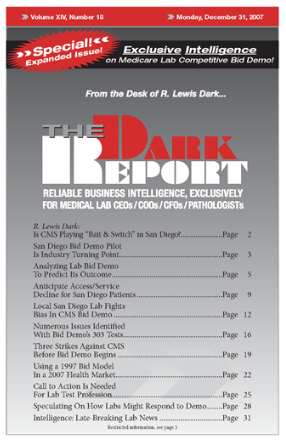CEO SUMMARY: There’s a touch of irony in the fact that the Medicare program is a national leader in encouraging hospitals, physicians, and other providers to pay greater attention to the voice of patients. Yet within the Centers for Medicare & Medicaid Services (CMS), officials tasked with developing the laboratory competitive demonstration project seem to …
Three Strikes Against CMS Before Bid Demo Begins Read More »
To access this post, you must purchase The Dark Report.


